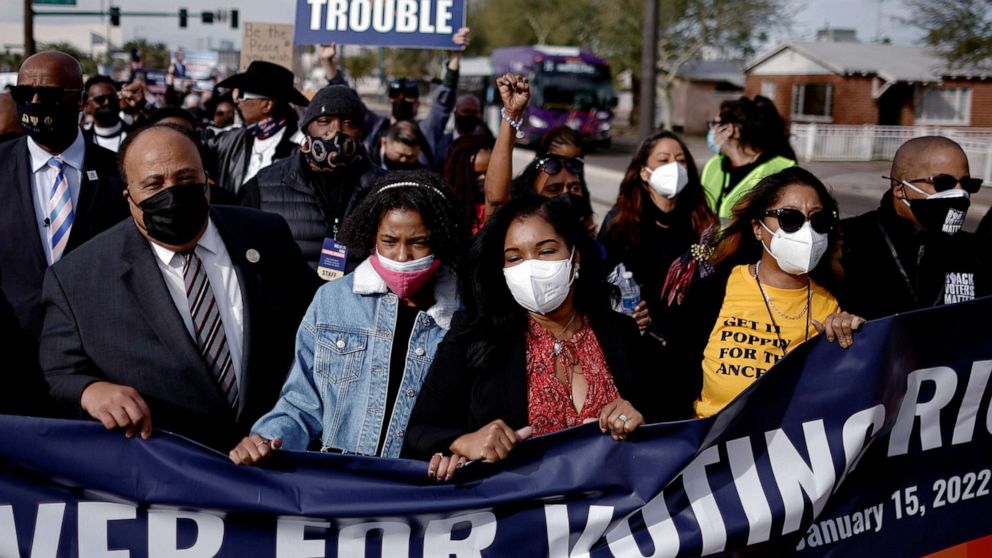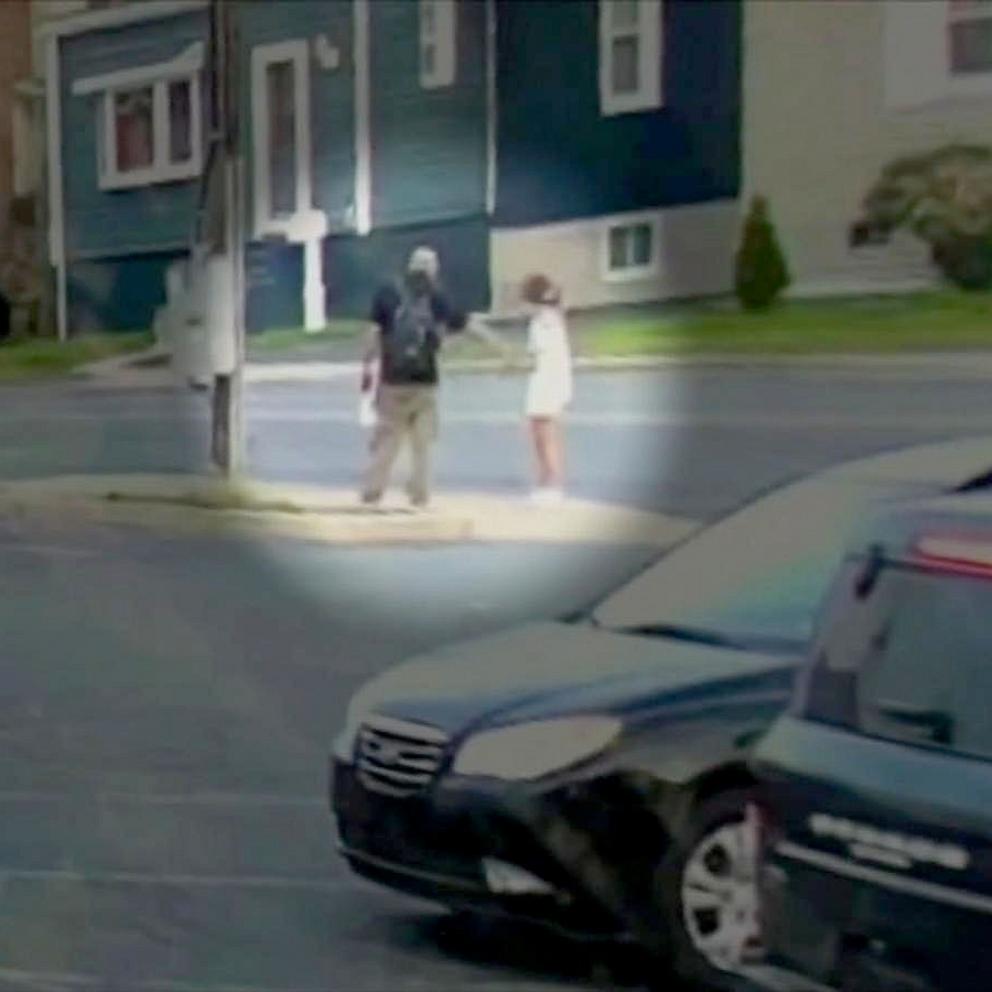Martin Luther King Jr.'s family leads march urging lawmakers to pass federal voting rights
As voting rights legislation remains stalled in Congress, Martin Luther King Jr.'s eldest son, Martin Luther King III, and his 13-year-old granddaughter, Yolanda Renee King, were among a coalition of civil rights activists who led the annual Peace Walk in Washington on Monday to honor the legacy of the civil rights icon and demand action on voting rights.
"What we want is for Americans to be engaged," King III told ABC News anchor Linsey Davis, adding that the need for federal safety guards is more urgent than ever. "This year, we are laser focused on getting the right to vote sustained and getting the right to vote empowered."
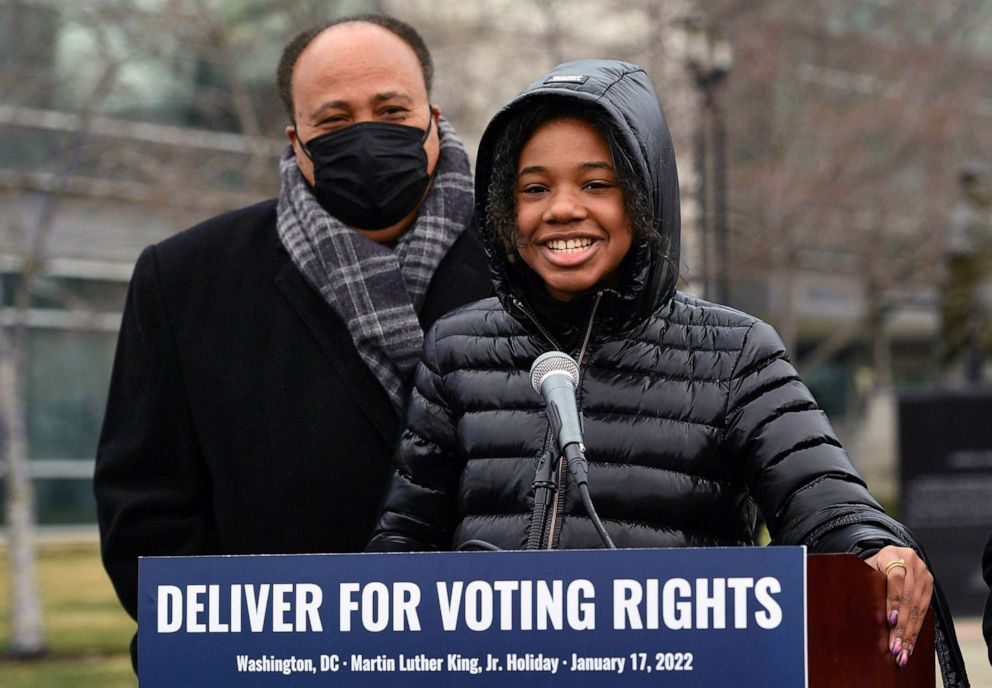
The march comes as lawmakers are expected to take up a vote to change the Senate rules as early as Tuesday that encompasses both the Freedom to Vote Act and the John Lewis Voting Rights Advancement Act. If voted to proceed, it would be the first time this Congress takes up a debate on voting rights in the Senate.
Without the support of 10 Republicans needed to overcome a GOP filibuster to block the legislation, Senate Majority Leader Chuck Schumer is expected to raise a rules change vote as early as Tuesday, according to a Democratic aide familiar. But with moderate Democratic Sens. Joe Manchin and Kyrsten Sinema making clear they will not vote to end the Senate's filibuster -- even though both support the underlying legislation -- the fate of the reforms that activists are demanding action on is unclear.
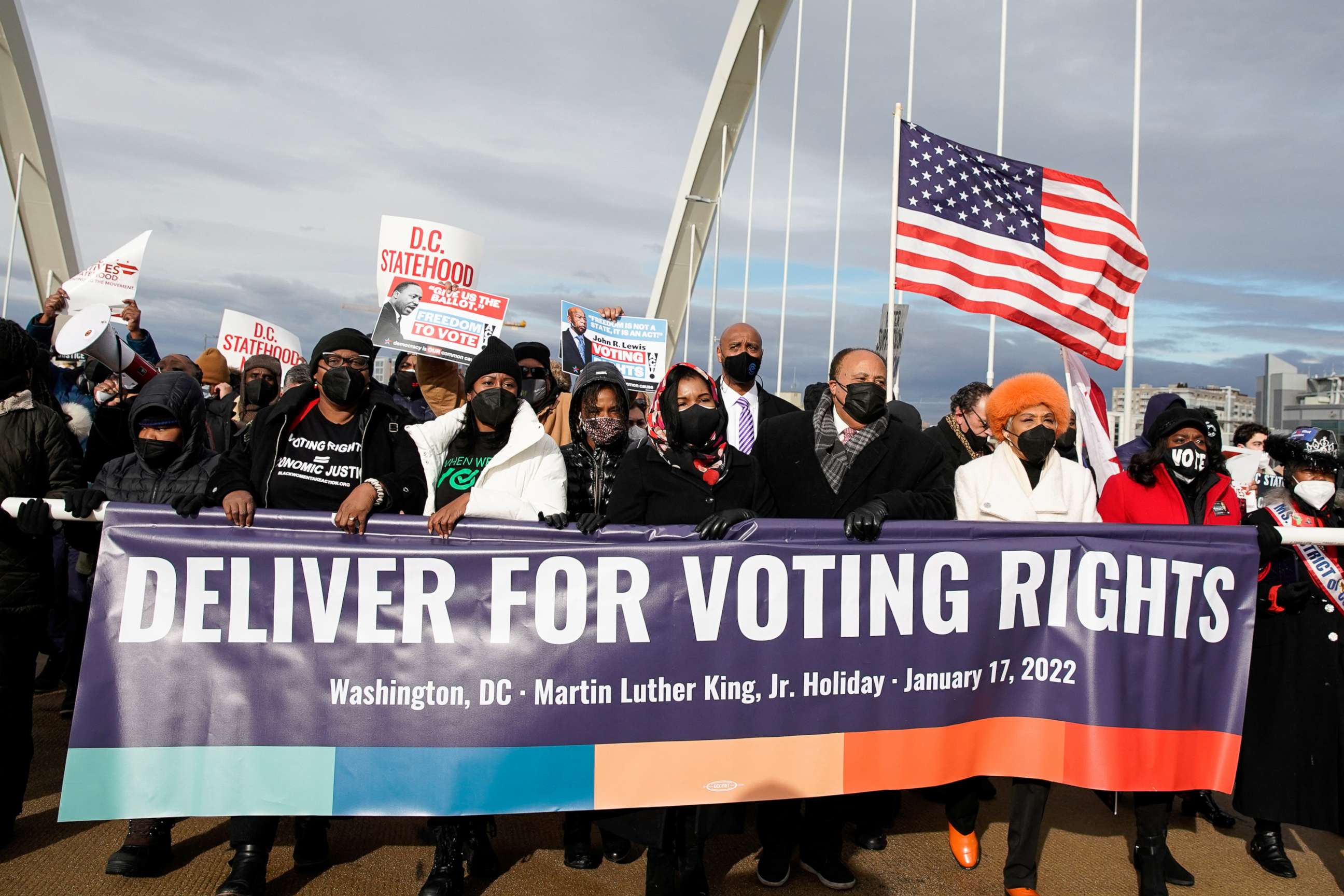
"Let the Senate hear you! Let the White House hear you all! Spread the word!" said King's granddaughter before her family led hundreds of marchers across a snow-capped Frederick Douglass Memorial Bridge.
Yolanda Renee King had sharp words for lawmakers, calling out Senators Manchin and Sinema by name.
"Sen. Sinema, Sen. Manchin, our future hinges on your decision and history will remember what choice you make. So join me in demanding action for today, tomorrow and generations to come," Yolanda Renee King said.
She added, "For all the elected leaders out there who are tweeting, posting and celebrating my grandfather, Dr. King, today, my message to you is simple do not celebrate, legislate!"
Manchin released a statement Monday celebrating the life and legacy of King, but made no mention of voting rights.
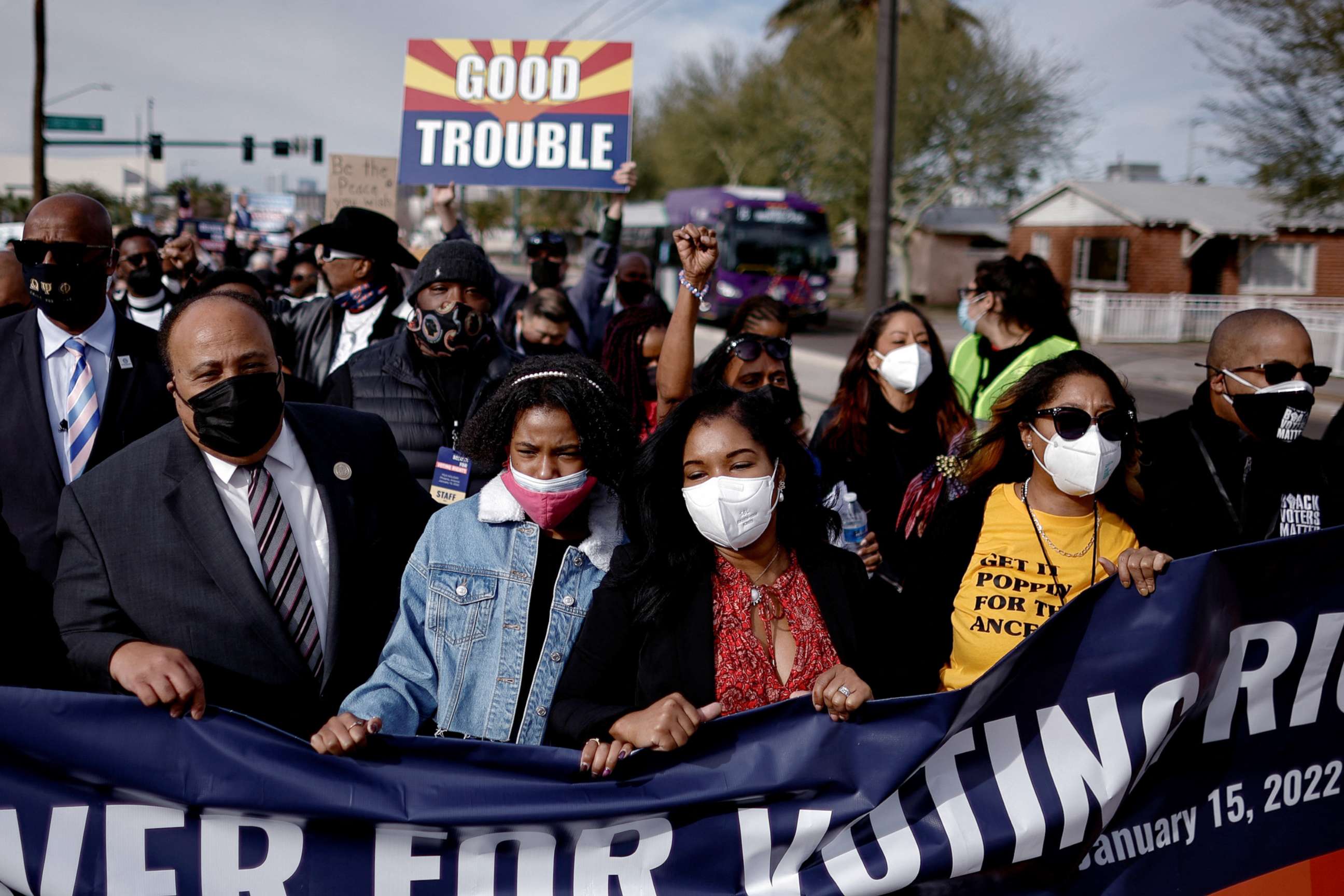
"We celebrate and honor the life of Dr. Martin Luther King Jr., one of the most inspiring and important figures in American history. Dr. King taught us to stand up for what we believe in through civil, peaceful means to unite our nation instead of divide it," the statement read.
When asked if Manchin's words are enough, King III told ABC News, "First of all, I would say that, you know, it's kind of frustrating for people to be releasing statements and you really have not totally adhered to my father's ideals. My father not only gave his life, but he fought for the right to vote, and he and others gave their lives. And again, Sen. Manchin says he supports a bill but he won't move or is not so far moved on a pathway to say that there's a pathway for it."
He added, "So my hope and my message to him would be senator, you got to go further. You can't say, 'I'm for something' but don't have a pathway to [it], and that's anybody who's talking about dad today, because I'm sure [there are also] many senators also on the Republican side, who ought to be ashamed of themselves, who have shut down the process for voter expansion, voter protections."
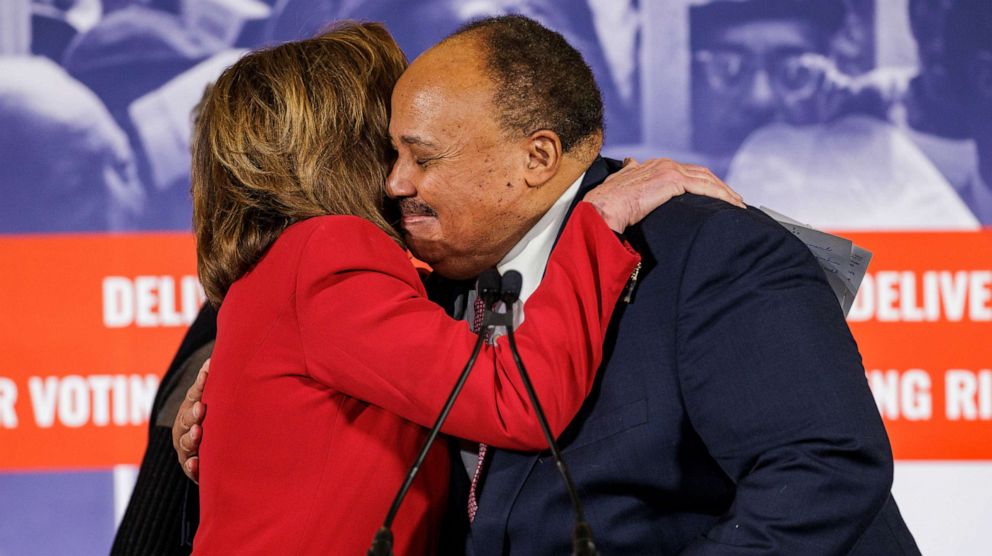
At least 19 states have passed new restrictive voting laws since the 2020 election. There have been 34 such new laws in total across the country, according to the nonpartisan Brennan Center for Justice, and most of them in states controlled by Republicans.
Many of the new laws, fueled by false claims of widespread election fraud by former President Donald Trump, take aim at mail-in voting, implement stricter voter ID requirements, allow fewer early voting days and limit ballot drop boxes.
House Speaker Nancy Pelosi joined the King family Monday for a voting rights rally at Washington's Union Station outside Capitol Hill, where she spoke in support of expanding voter access, alongside other members of Congress and activists, including Congressional Black Caucus Chair Rep. Joyce Beatty, D-Ohio, and Rev. Al Sharpton.
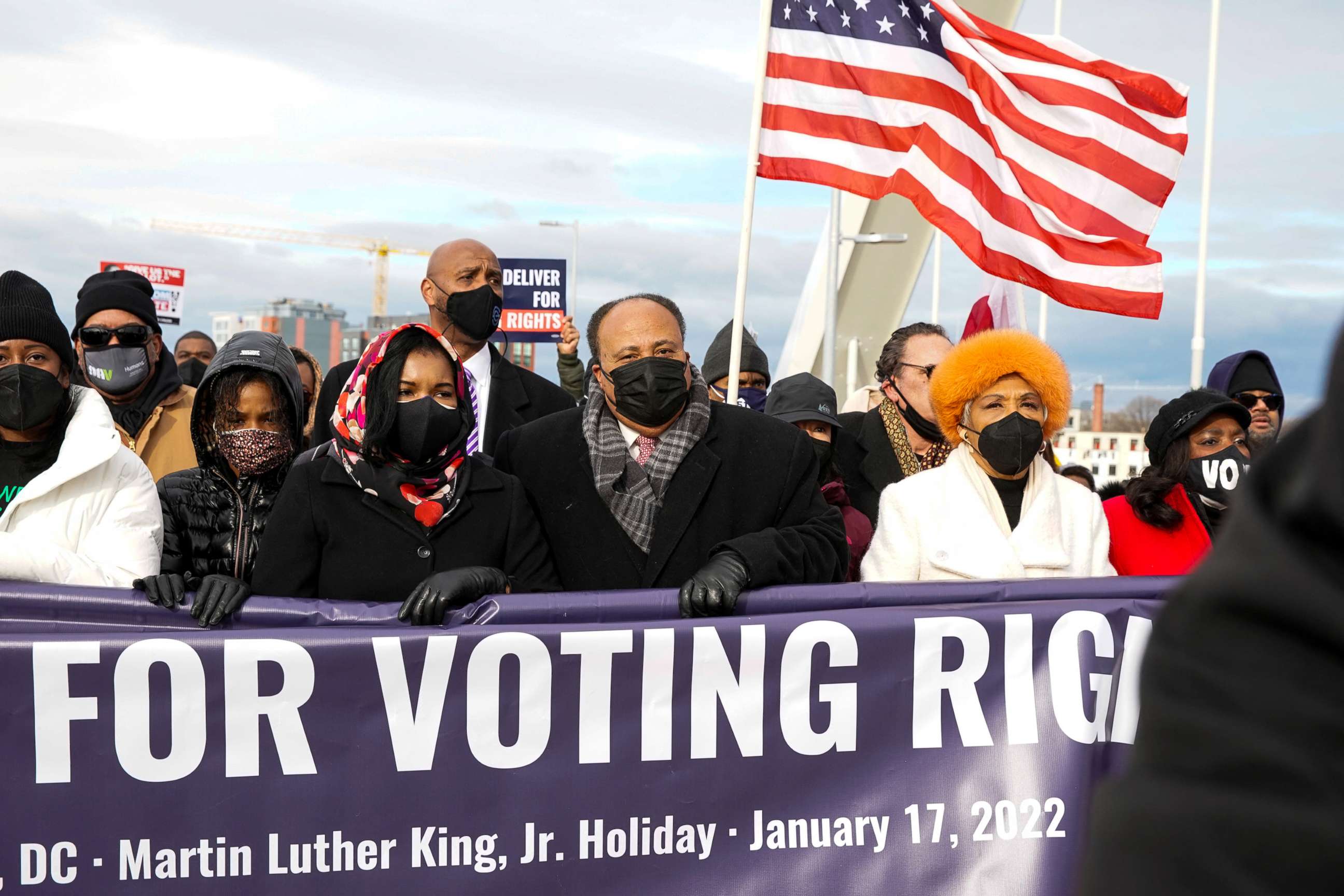
"The Congress and I give great credit to the Democratic Leader Chuck Schumer for his relentless and persistence and trying to get this done, and to the president for his leadership, but we have to get this done," Pelosi said, before launching into an argument for changing Senate rules to make way for election reform legislation.
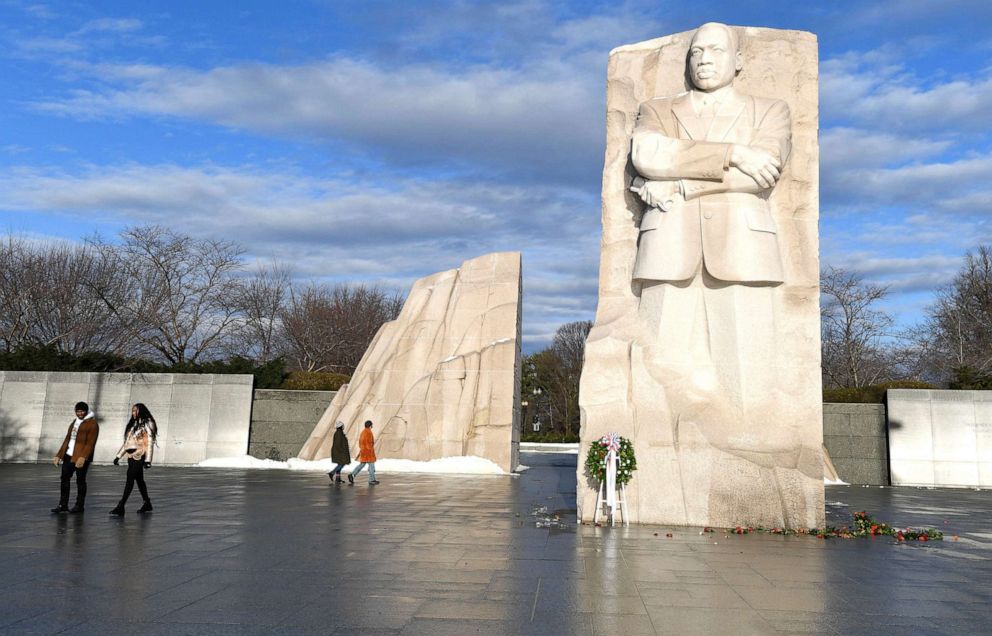
"While it may be true to them that the filibuster is an important custom, it is not the Constitution of the United States, the truth is," Pelosi said. "If you really truly want to honor Dr. King, don't dishonor him by using compression of custom as an excuse for our democracy."
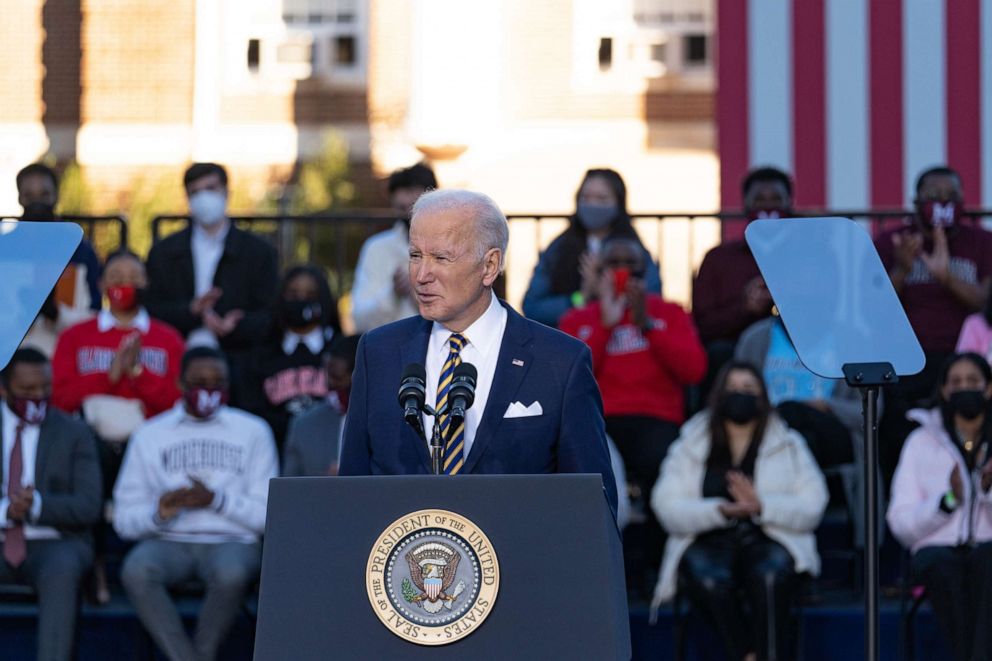
Beatty, following Pelosi, told the crowd of supporters, "Silence is not an option."
"We will not yield our efforts to enshrine voting rights legislation into law, nor will we allow a filibuster to filibuster away our democracy and our voting rights," she said.
ABC News' Libby Cathey contributed to this report.
